The huge success of Colombian butt-lifting jeans
- Published
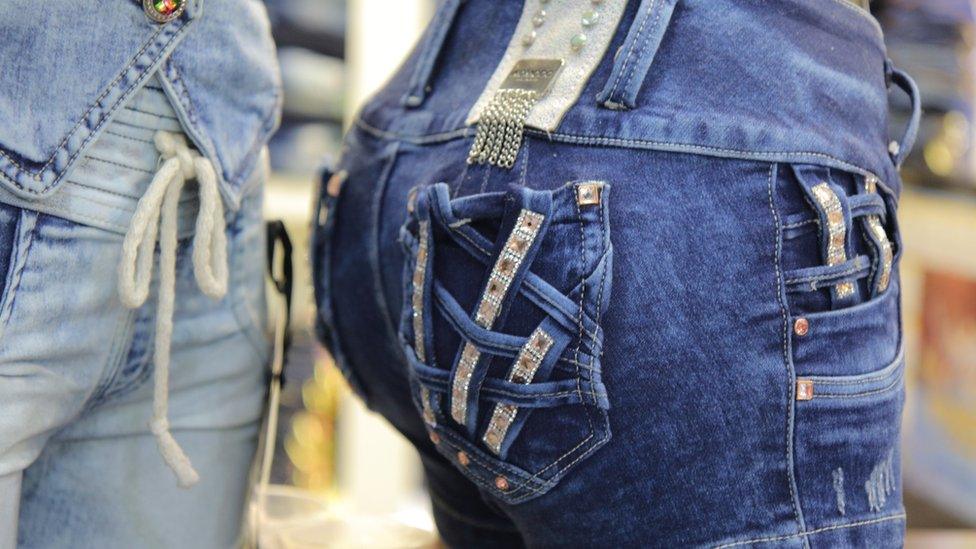
"Both legs of the pair of trousers were fully covered in rhinestones and pearls and sequins," remembers Gregorio Jose Rivera Quiroz of his greatest commercial hit since entering the jeans business.
"I could raise the price and people would keep buying."
He had that model made in China and imported five whole containers, selling 600,000 in just three months.
That was 15 years ago and Mr Rivera has been in the business since 1992. But he still loves rhinestones, glitter and pearls.
He is not alone: everywhere in his country Colombia, on the streets, in stores, one can see blue, black, white ladies' jeans, with complex embroidery and appliques and bright stones, especially on the back pockets.
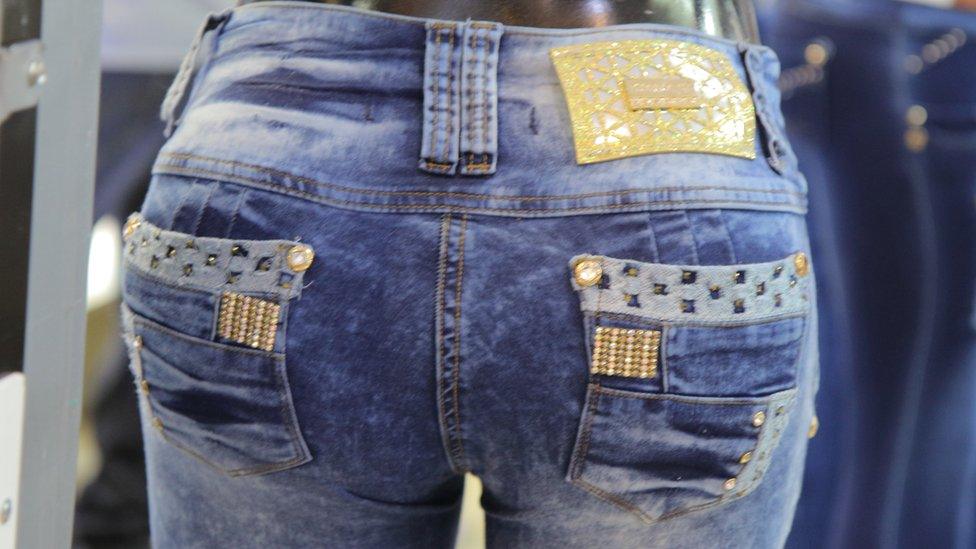
These jeans lift the butt and draw attention to it
Decisive innovation
The largest jeans wholesale spot in Colombia is the Gran San shopping centre in Bogota.
It has more than 700 stalls that mainly sell jeans manufactured by hundreds of factories in the Colombian capital and other cities around the country.
And the jeans that can be found there are full of glitter, as designers compete for the attention of the customers.
But a more decisive innovation than the decorations came some 20 years ago - butt-lifters.
"It is exclusively Colombian," says a proud Mr Rivera.

This is Gregorio Jose Rivera Quiroz, jeans businessman for the last 20 years
The name says it all - the design has a few tricks to shape the buttocks of the wearer.
There are at least three secrets that make the butt-lifters work, and they can be seen extensively in the Gran San shopping centre:
A high waistband that covers the stomach
More cloth in the buttocks than other jeans
Pinched in one, two or three places above the back pockets or under the waistband, to shape the excess cloth
"It has been perfected over time so now the competition is to see who can lift more," says Mr Rivera.
After the butt-lifter innovation came the rhinestones, the pearls, the decorations, to make the jeans even more jazzy.
'Every age and social class'
"The butt-lifter and the design go hand in hand," says Nayibe Gaitan, who has been working for 11 years in this industry.
She is now a saleswoman for a brand in Gran San shopping centre, but before that she worked in the administrative department of the factory, so she knows this world well.
According to her, women from every age and social class buy the decorated butt-lifters.
The company she works for manufacture some 350 units of every model (50 models per collection) and they never repeat them - when they are gone, they are gone. Almost no brand in this place repeats a model.
In Gran San wholesale jeans are between 40,000 and 60,000 Colombian pesos apiece $14-20, £11-15).
The decorated butt-lifter has become the archetypical Colombian jean, a product that has reached markets outside the country.
"Any Latin woman wants her butt-lifter trousers," says Mr Rivera. "A client of mine in the US sells to Latinas all over the world."
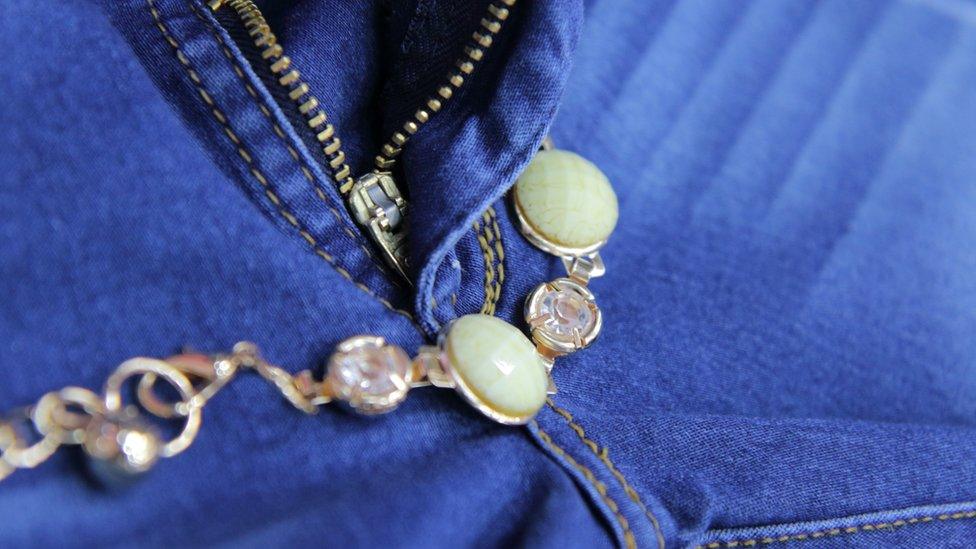
Women's jeans with elaborate patterns are common in the shopping centres of Colombia and in the country's exports
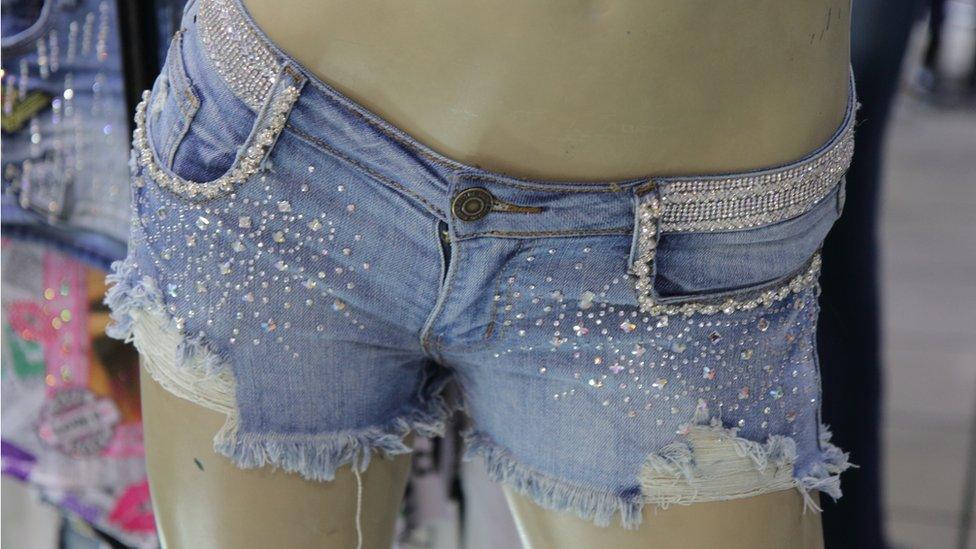
It is all about the rhinestone decoration for many shoppers
Miami, Florida and Los Angeles, where Latin American communities are concentrated, are key markets for Colombian jeans.
Figures from Colombia show the US accounted for 50% of the $111m (£83.4m) of worldwide Colombian jeans exports in 2015. Mexico and Ecuador follow as destinations for the Colombian denim trousers.
Jeans make up about 10% of all the clothing Colombia sells abroad.
Local manufacturing and exports have strengthened since 2014, when the dollar started gaining strength against the Colombian peso, giving the country a competitive edge.
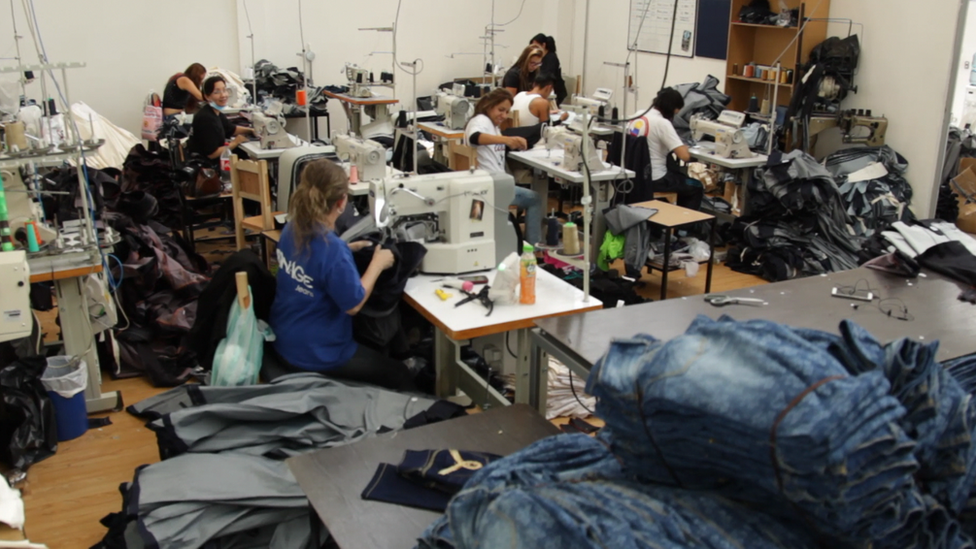
In 2014 Gregorio Jose Rivera Quiroz started manufacturing operations in Colombia.
That was the year Mr Rivera - who had stopped manufacturing in Colombia- started producing here again.
He now has 120 employees working directly in his factory in Bogota, called Key Store. But adding the indirect jobs needed to produce the clothes, he gives work to over 400 people.
Ms Gaitan explains that some 70 people need to work over a period of a month to manufacture a Colombian decorated butt-lifter jean.
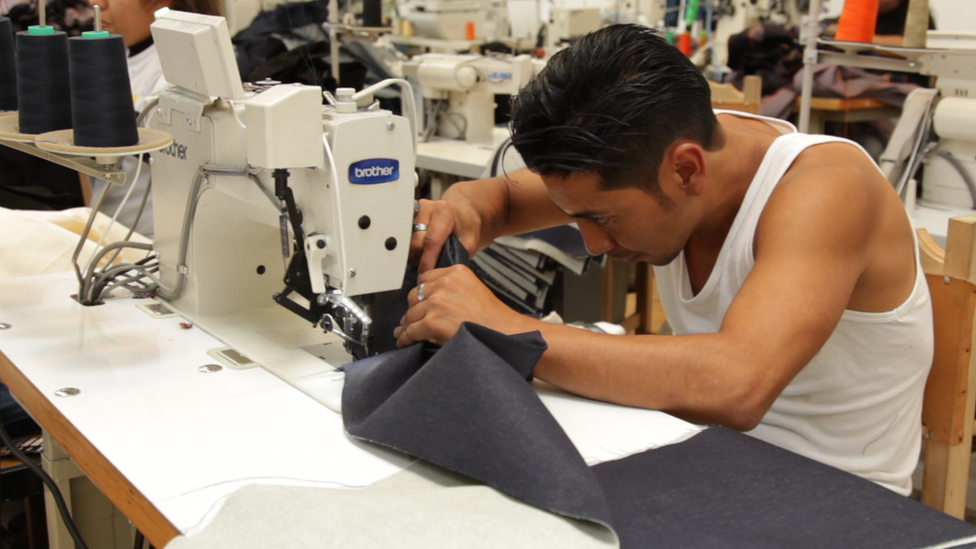
One pair of jeans may take 70 people to construct
The brand she works for exports to Chile, Guatemala, Mexico and the US. Mr Rivera also exports to the US - of course - and to Chile, Peru and Central America.
Currently Colombia is the third jeans exporter in Latin America, behind Mexico and Nicaragua.
Now Colombian jeans are becoming a bit less decorated, says Mr Rivera.
"Today there is not as much glitter, not like a year-and-a-half ago".
His factory would produce 12-15 models with rhinestones in a collection of 60 models. But many still have other decoration, like embroidery.
But subtlety is not so easy to find in Gran San.
Carolina Castillo sells various brands of jeans made in Medellin (Colombia's second city and another big jeans production spot).
She says the more basic one she offers is one with six pink stones in each back pocket.
It seems like the decorated butt-lifter still rules in Colombia.
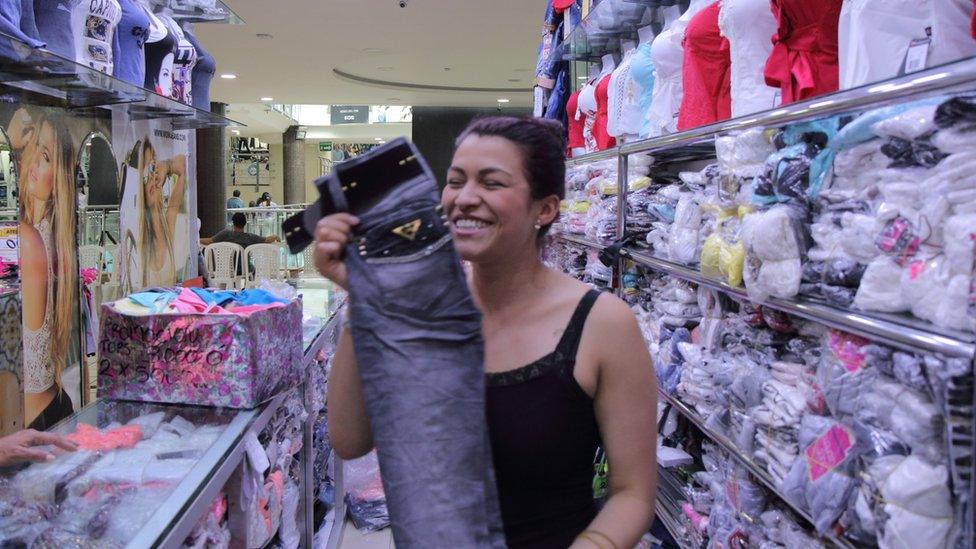
Carolina Castillo thinks rhinestones are here to stay
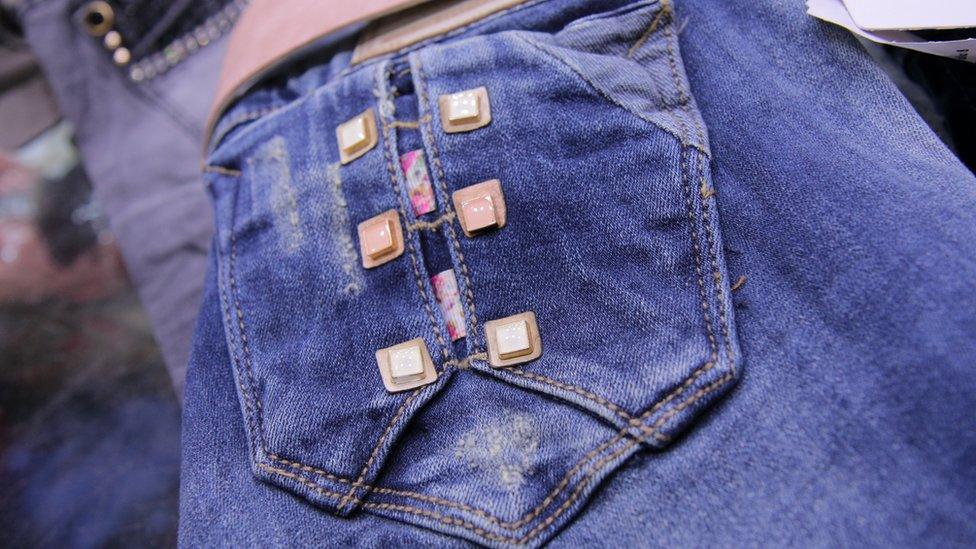
This is her simplest model of jeans